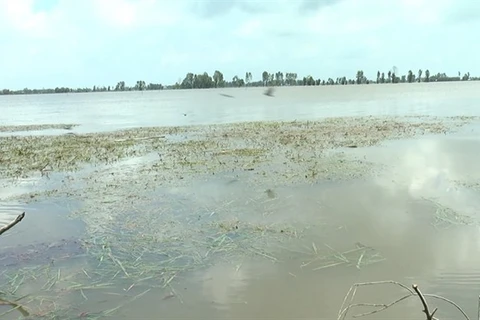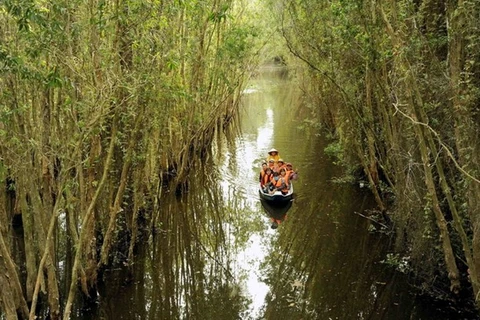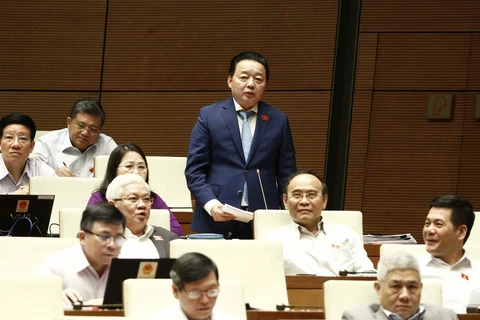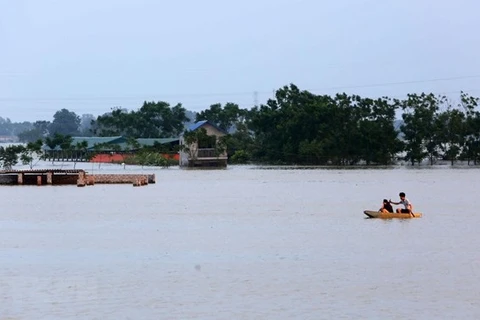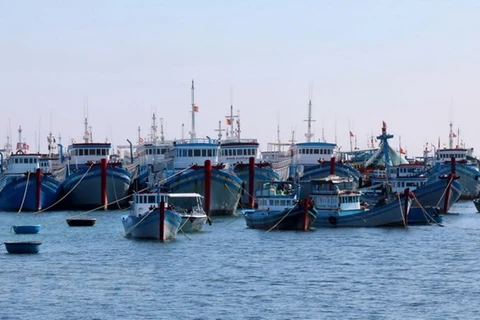 Secretary of the Dong Thap provincial Party Committee Le Minh Hoan speaks at the workshop in Can Tho city on November 22 (Photo: VNA)
Secretary of the Dong Thap provincial Party Committee Le Minh Hoan speaks at the workshop in Can Tho city on November 22 (Photo: VNA) Can Tho (VNA) – Policies and solutions to promote sustainable development and climate change response in the Mekong Delta of Vietnam were suggested at a workshop in Can Tho city on November 22.
Andrew Wyatt, Mekong Delta Programme Manager of the International Union for Conservation of Nature (IUCN), said the region is facing certain challenges, noting that the local flood control is currently unsustainable as a system of high dykes have increased disaster risks and could push these risks to other areas.
The unsustainable land use, caused by weak groundwater resource and sediment management, has led to subsidence in low-lying areas that is even more serious than that caused by the sea level rise. Insufficient marine spatial planning has also raised natural disaster risks posed by strong storms and the rising sea level, he noted.
Wyatt said to curb the increase of disaster risks resulted in by unsustainable development, it is necessary to preserve and restore flood absorbing areas in the Plain of Reeds and Long Xuyen Quadrangle by applying flood-based agricultural models.
Intensive shrimp farms should be relocated away from coastal areas and replaced with forest-based shrimp farming to protect the coast, he said, stressing that this will help reduce groundwater overexploitation that subsequently leads to subsidence.
Le Minh Hoan, Secretary of the Dong Thap provincial Party Committee, said the most important thing is that the Mekong Delta localities have to change the mindset of their administration, farmers, as well as businesses. Instead of cultivating three rice crops per year, local farmers should apply rice – fish, rice – shrimp or rice – lotus farming models. They should also cultivate other kinds of plants and animals for better economic benefits.
Meanwhile, Director of the Soc Trang provincial Department of Agriculture and Rural Development Luong Minh Quyet said technical infrastructure needs to be completed first to sustainably develop the Mekong Delta.
The region consists of 13 provincial-level localities, but it has had only 50km of expressways, Quyet noted, adding that this is the biggest obstacle to local socio-economic development.
Without good infrastructure for transportation, the region will definitely not be able to develop even in normal climate conditions, not to mention the devastating impact of climate change, he stressed. –VNA
VNA
